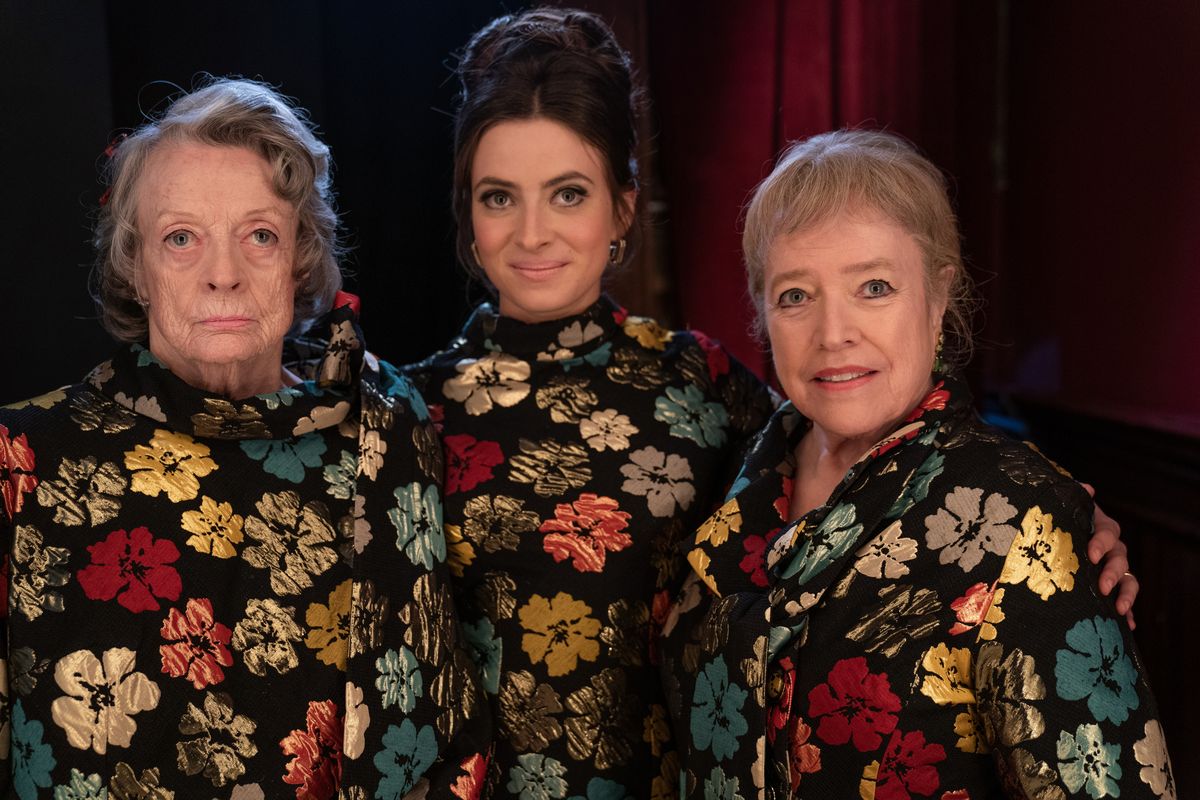Movie Review: ‘The Miracle Club’: Melodrama touts the healing power of moving on

When a group of Irish ladies from 1967 Dublin make a pilgrimage to Lourdes seeking a cure for a little boy who is mysteriously mute in a movie called “The Miracle Club” - three of them dragging emotional baggage about unforgiven slights and betrayals from decades earlier - you can be fairly certain that some form of divine intercession will occur before the closing credits. Mind you, it’s not necessarily the sort you read about in the annals of unexplained medical wonders, where crutches are thrown to the ground and the lame are seen to walk. Rather, it is the kind all too common in movies of this ilk, thanks to a predictable screenplay courtesy of Joshua D. Maurer, Timothy Prager and Jimmy Smallhorne.
It’s one in which conciliation, not a cure, is just waiting to be delivered, via a cinematic deus ex machina, in under a fleet hour and a half.
The petitioners in question are neighbors Lily (Maggie Smith) and Eileen (Kathy Bates), accompanied by Eileen’s daughter Dolly (Agnes O’Casey) and Dolly’s son Daniel (Eric Smith), who hasn’t uttered a word since he was born. After winning tickets to Lourdes through a local singing competition, they set off in search of a miracle for Daniel, and maybe one for Eileen, who has discovered a lump on her breast. (Technically, they place second in the contest, but the little boy with the golden voice who wins donates his tickets. He doesn’t want to go to Lourdes, he sniffs.)
Another traveler is Laura Linney’s Chrissie, Eileen’s cousin and an expatriate Dubliner who, as teenager, left town for America under a cloud 40 years ago, and who has only now returned, grudgingly, for the funeral of her estranged mother. Lily and Eileen still harbor resentment toward Chrissie; it isn’t hard to guess why, but the film waits to spell out the reason.
So why Chrissie throws in with these embittered former friends for a road trip - other than that the script requires their communal penance - is the film’s only real mystery.
It’s a sterling cast, capably guided through the motions by director Thaddeus O’Sullivan - no relation to the author of this review, at least none that I know of - in this at times gently amusing and at other times modestly touching dramedy. These characters share a past, the contours of which have much to do with the judgmental Catholic morality and slowly simmering sexism of mid-20th-century Ireland. In 2023, it all seems (and is) quaintly out of step.
Eileen’s husband (Stephen Rae) gets all in a twist, for instance, because he has to stay at home and cook and care for their large brood of kids by himself, providing intermittent comic relief in scenes of his parental ineptitude. Lily’s husband (Niall Buggy) isn’t much better, nor is Dolly’s husband, George (Mark McKenna), who warns his wife that if she leaves him behind for the trip, he won’t be there when she gets back.
It’s hard to take any of this terribly seriously, given the director’s light touch, even in scenes in which the characters are chewing one another out over things that were said and done almost a half-century earlier. The coming propitiation looms large - an angel of mercy hovering over this melodrama, even at its most melodramatic.
Chaperoning the protagonists is the handsome neighborhood priest, Father Dermot (Mark O’Halloran), with whom Lily accuses Chrissie of flirting, preposterously. Truth be told, he would have made a good catch, since he alone seems to have a handle on what this whole movie is about: the mundane yet also miraculous power of forgiveness - a.k.a. moving on. “You don’t come to Lourdes for a miracle,” he sagely advises Eileen. “You come for the strength to go on when there is no miracle.”